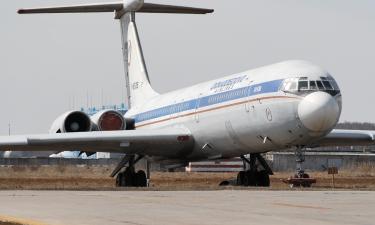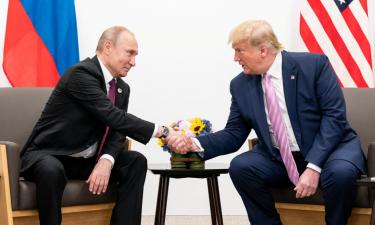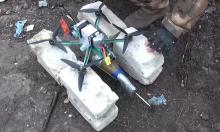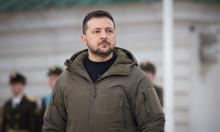Russia to surround USA with its influence
Russian Defense Minister Sergei Shoigu has recently visited Iran and India, while Federation Council Speaker Valentina Matviyenko has paid a visit to Nicaragua. The officials discussed Russia's participation in the construction of a transatlantic channel of military and strategic importance. Russia's most recent agreements became a response to the challenges from the United States. The Americans are concerned.
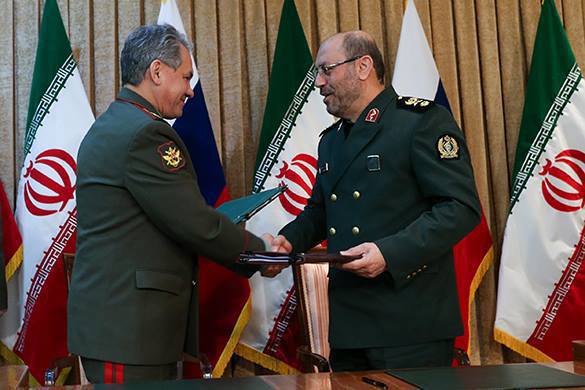
Military cooperation with Iran
In light of the growing confrontation with the West, Russia must respond by increasing its military presence in various regions of the world. We must look for allies, who are ready to provide maintenance bases for Russian ships, submarines and aircraft.
In addition, Russia must protect these allies against possible direct or indirect American aggression. For example, Russia can supply weapons to these countries to ensure technological and mental dependence.
On January 20, Russian Defense Minister Sergei Shoigu signed an agreement on military-technical cooperation with his Iranian counterpart in Teheran. Shoigu thus opened the green light to the resumption of negotiations on the supplies of S-300 missile systems. Russia had previously terminated the execution of the contract in 2010, after President Medvedev joined the imposition of sanctions against Iran for the development of the nuclear program.
Sergei Shoigu said that Russia and Iran had "common challenges and threats in the region, which they can resist by working together." The West was not named among these threats directly, but Russia does not need to complicate the highly strained relations with the Americans.
The Iranian side was bolder. IRNA news agency called Shoigu's visit to Iran "an outstanding event." "Iran and Russia will be able to resist the expansionist claims and greed of the United States within the framework of cooperation, interaction and activation of potential strategic opportunities," - Iranian Defense Minister Hossein Dehghan said.
Probably, the minister was talking about Iran's membership in the Shanghai Cooperation Organization (SCO), which is known in the West as an analogue to NATO. For the time being, Iran is an observer in the SCO. Iran will have an opportunity to join the Shanghai Cooperation Organization as soon as the sanctions from the country are lifted. The SCO charter says that a sanctioned state can not be a full member of the organization.
Russia and India stay together
India is also an observer at the SCO. Russia's Defense Minister Sergei Shoigu visited the country after Iran. India accounts for nearly a third of Russian arms exports. Indian Prime Minister Narendra Modi stressed out during President Putin's visit to India in December that Russia "remains India's most important partner in the field of defense and security."
He emphasized the national feelings of the Indians and said that the significance of the English language and the Anglo-Saxon influence of the Indian elite was decreasing. According to the Indian PM, India wants to build a "just society". This sounds very similar to Russia's sovereign political line that closes with a vision of world order in another part of the world - Latin America.
Federation Council Speaker Valentina Matviyenko became a guest of Russia's another ally - Nicaragua. During the meeting with Nicaraguan President Daniel Ortega, she thanked the leadership of Nicaragua for their continued support to "Russia's initiatives" in the international arena.
Last year, Defense Minister Sergei Shoigu stated that Russia was going to build military bases in Nicaragua, Cuba, Venezuela and Argentina. Although the Minister subsequently minimized statement by saying that he was talking about maintenance bases for warships and aircraft, everyone understands that the ultimate goal is to build military bases.
Russia has contracts on building maintenance bases with Nicaragua and Vietnam. "Russian "polite people" may appear in Nicaragua in the near future. China is building a channel for this country that can actually change the entire world trade, due to competition with the US-controlled Panama Canal," former Deputy Prime Minister of the Republic of Crimea Rustam Temirgaliev wrote on Facebook. - This channel will soon become a center of geopolitical confrontation, and it is not bad at all that this time it will happen near the borders of the United States, not Russia.
International Business Times reported that the US was concerned about the implementation of the project because of the lack of transparency in the 50-billion-dollar project, farmed out to China (HKND Group) with neither tender, nor technical justification provided.
However, the construction of the century has began, and it will be the cornerstone of the multipolar world without the US hegemony. Russia will gain influence in the region and will carry out a strategy of the Soviet Navy as a major deterrent of the United States. Experts Douglas Farah and Liana Eustacia Reyes of BI Consultants Washington wrote in their article "Russia in Latin America: The Strategic Challenge" that Russia's influence in Latin America was greater than ever before, even at the height of the Cold War.
Military bases and Russian influence in Latin America
This influence is based on the "support network" of the ALBA block (Bolivia, Cuba, Ecuador, Nicaragua, Dominican Republic, Antigua and Barbuda, Saint Vincent and the Grenadines and St. Lucia - Ed.), who seek to jointly destroy the system of military doctrine and American security in the region. The goal is to weaken its economic and cultural ties with this country, whose policy is seen as an attempt to "decolonize" Latin America.
The Putin government provides ALBA countries with weapons, personnel training, equipment and technology for police, with nuclear technologies, oil exploration equipment, financial assistance and influential support at the UN Security Council and other international forums. In turn, these countries rescue Russia from international isolation, the authors write.
The main lever of influence of Russia, as Farah and Reyes write, is the sale of arms. It goes about "hundreds of thousands" of new Kalashnikov AK-47 assault rifles, as well as tanks, helicopters, supersonic fighters and ground-to-ground missiles. In the last three years, Russia has sold three thousand of such missiles with Venezuela being the main buyer of Venezuela with orders worth $13 billion in 2007-2011.
There are other levers - financial ones. Russia forgave 90 percent of the debt of the former Soviet Union to Cuba. In Brazil, Russian President promised to help establish a credit organization that would "oppose the World Bank." The US experts point the growing influence of Putin in El Salvador, where "many high-ranking officials speak Russian and publicly declare their readiness to harmonize their policies with Putin's Russia."
In Nicaragua, Putin promised Daniel Ortega to take "the ambitious, multi-billion dollar project" of the construction of the channel under protection. In Argentina, Putin and Kirchner signed an agreement on strategic alliance.
Russia is moving in the right direction.
Lyuba Lulko
Pravda.Ru
Subscribe to Pravda.Ru Telegram channel, Facebook, RSS!
